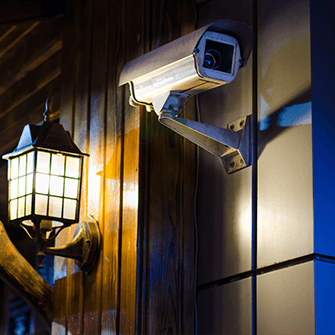
Colin and Beverly Thorne* saw no reason to upgrade their home security system – they had installed it almost fifteen years ago and they’d never been robbed once. With the occasional system battery change, as far as they knew their system was working fine. So they were stunned and dismayed to discover one morning their home had been quietly ransacked why they slept.
“And the alarm never went off,” Beverly said. “We couldn’t understand why nobody responded until we went to call the police and the phone was dead. The burglars had cut the phoneline and disabled the siren before they came into the house.
Over the 15-20 years since Colin and Beverly installed their alarm, at least two generations of local burglars have completed their hands-on criminal apprenticeship, learning how to work around security equipment, creating new strategies and in some cases even exchanging skills and expertise with other members of their “profession”. It doesn’t take long to become an expert house-breaker. The Thornes’ outdated system was attached to their fixed phone line and stopping it from being monitored would have been a simple challenge for the burglar who simply cut the wire before entering the house.
Whilst this may seem like a scene out of a B-grade spy movie, it is in fact as easy as using a pair of scissors, thanks to the way most Australian phonelines enter the premises at the ‘network boundary point’. With a single snip, criminals can defeat old-fashioned alarm systems’ ability to report to a central monitoring station. Whilst a siren may still sound, everybody knows these are now ignored by neighbours as ‘background noise’ rendering an unmonitored alarm completely worhtless. Most alarm panels do send a ‘test signal’ some time between 24 hours and 7 days. The monitoring centre will know if a system hasn’t ‘phoned home’ as scheduled, however given the elapsed time, the first the property owner will know of the problem is usually after the crime. Ironically, these fundamentally insecure systems are often very expensive due to telephone line rental and call charges. Every time the alarm panel sends a signal, this costs money, often $2-5 per week in hidden charges on top of monitoring fees.
The solution to this problem is a ‘polled’ system which sends a regular ‘heartbeat’ over a combination of internet connections and the mobile network, letting the monitoring centre know everything is okay. When the alarm is activated, they know. If the line is cut, they also know and can alert you and despatch a response. Best of all, these systems do not require a phoneline at all, so people who prefer to use their mobile phone or a far cheaper VOIP telephone system can still have a properly monitored security system connected to a certified monitoring centre for peace of mind and insurance benefits.
The greatest weakness in a home-owner’s security package is complacency. How often have you read a heart-breaking article about a crime, and a bewildered neighbour is always quoted in the newspaper, saying “This just doesn’t happen here. We never even lock our doors at night.” It isn’t your security system that makes you feel safe. It’s that unshakeable conviction that violence and greed could never violate your home. Bad things don’t happen in your neighbourhood. Nobody has broken into your house for twenty years, so nobody will break in tonight. “We tend to be poor judges of risk,” says security expert Bruce Schneier. “We get risks wrong – threats, probabilities and costs – all the time.”
Once your complacency is shattered, you find yourself in the opposite extreme, terrified and constantly alert for danger in your own home, particularly at night when you need to sleep. If you can sleep. You might choose to reinforce your home security with a convoluted and intrusive system that inhibits your freedom and constantly reminds you of your fears. “When we’re afraid, really afraid, we’ll do almost anything to make that fear go away,” says Schneier. “We overreact to rare risks, we ignore long-term risks.”
It is possible to find a happy medium between complacency and security-obsessed, so you can feel confident that your security system is up-to-date and effectively prevents crime, without feeling like you’re living in a prison. In many cases, the home ‘security’ system can be a lifestyle tool as well, for example allowing you to remotely open a gate for deliveries via your iPhone, or check on the kids’ arrival home.
The Thornes replaced their system with an IP based security system, available from Calamity – whose slogan is “Feel Safe Again”. Now they have security without anxiety. “I feel secure in my home again,” says Beverly Thorne. “But we won’t leave it so long next time – in a few years, we will be checking if your security alarm is still the most effective on the market.”

